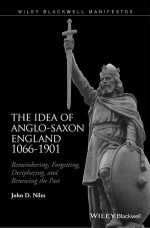Six hundred years of Anglo-Saxon rule came to an abrupt end with the Battle of Hastings in 1066. That same date marked the onset of a surprising number of myths and misinformation regarding the Anglo-Saxon era and the origins of the English people. The Idea of Anglo-Saxon England presents the first systematic review of the ways in which the study of Old English language and literature and the concept of the Anglo-Saxon past itself, evolved from the time of the Conquest, through the Early Modern period, up to the year of Queen Victoria’s death at the dawn of the twentieth century. Tracing this evolution stage by stage, the book’s chapters reveal how documents dating from the Anglo-Saxon period have greatly influenced modern attitudes toward nationhood, race, religious practice, and constitutional liberties, even if sometimes through flawed acts of recovery. Over time, the idea of Anglo-Saxon England thus grew ever greater in influence, serving as a myth of origins for the English people, their language, and some of their most cherished institutions. The Idea of Anglo-Saxon England reveals how present concepts of Englishness might look very different were it not for the discovery and invention, of the Anglo-Saxon past.

The idea of Anglo-Saxon England 1066-1901
ISBN: 9781119071242
Format: Paperback
Publisher: Wiley
Origin: US
Release Date: September, 2024


